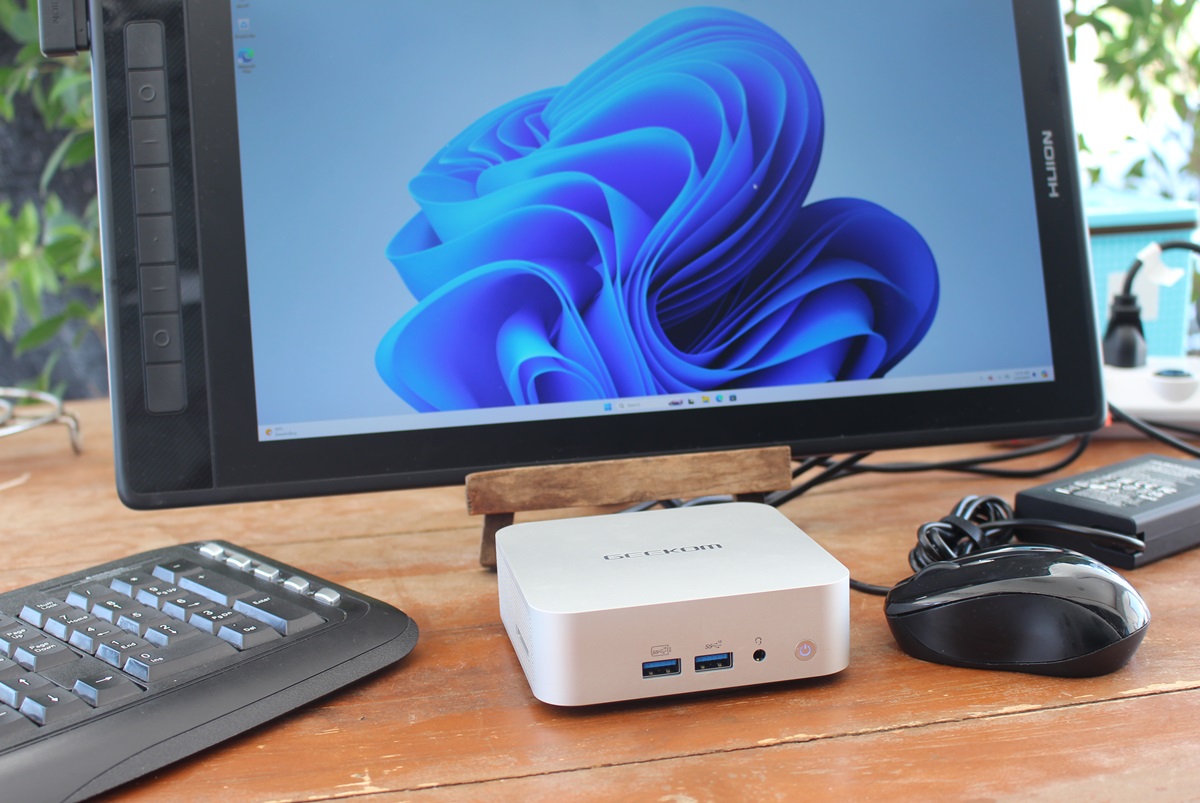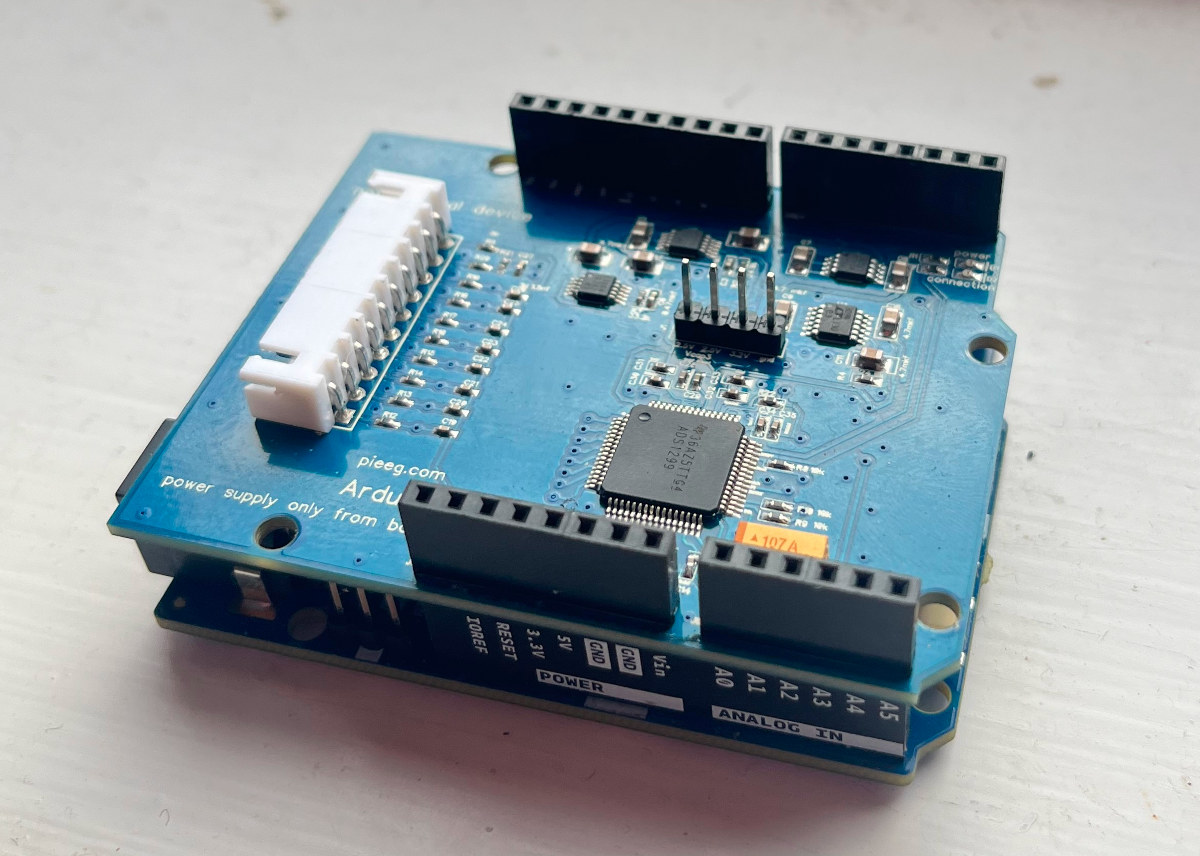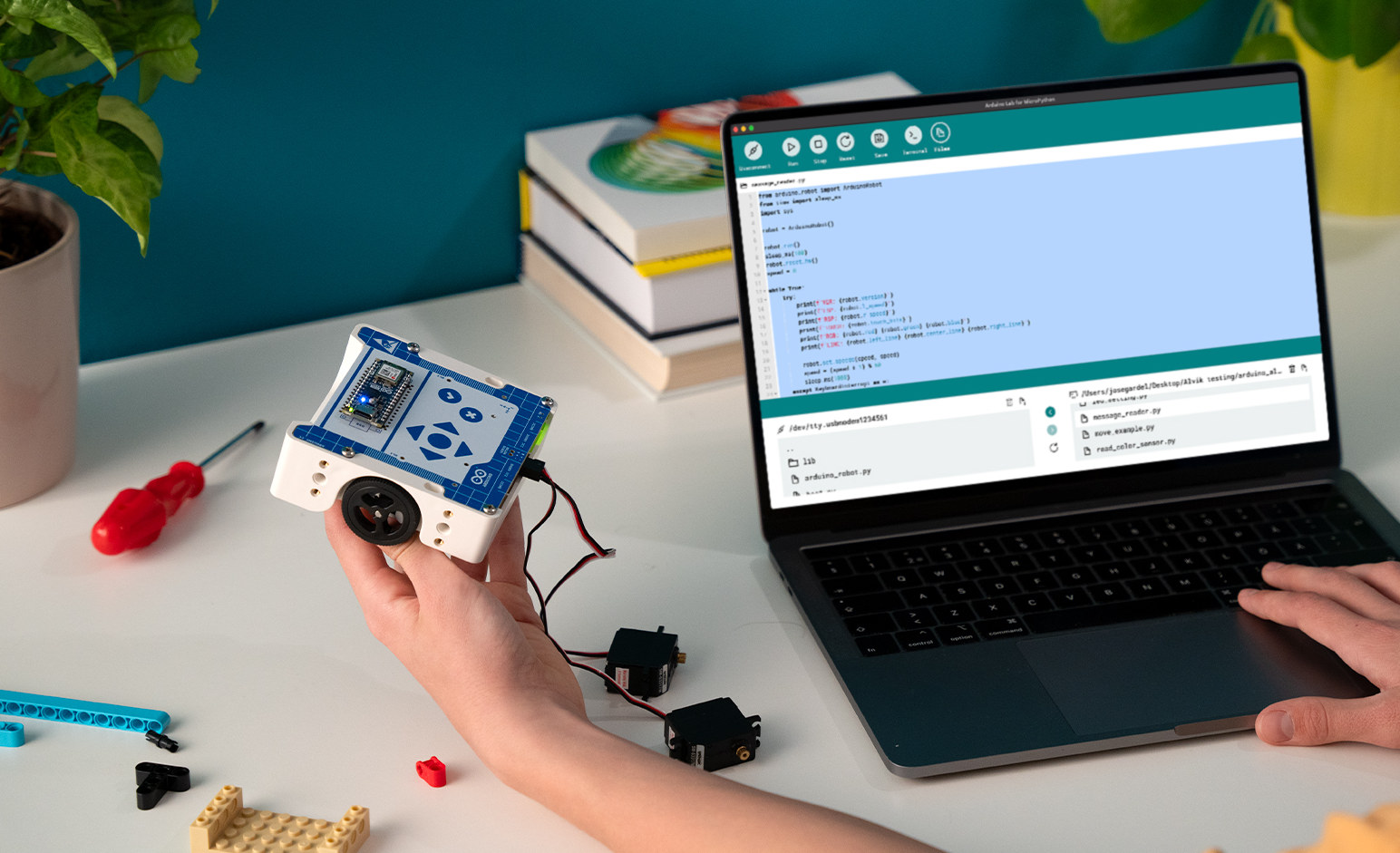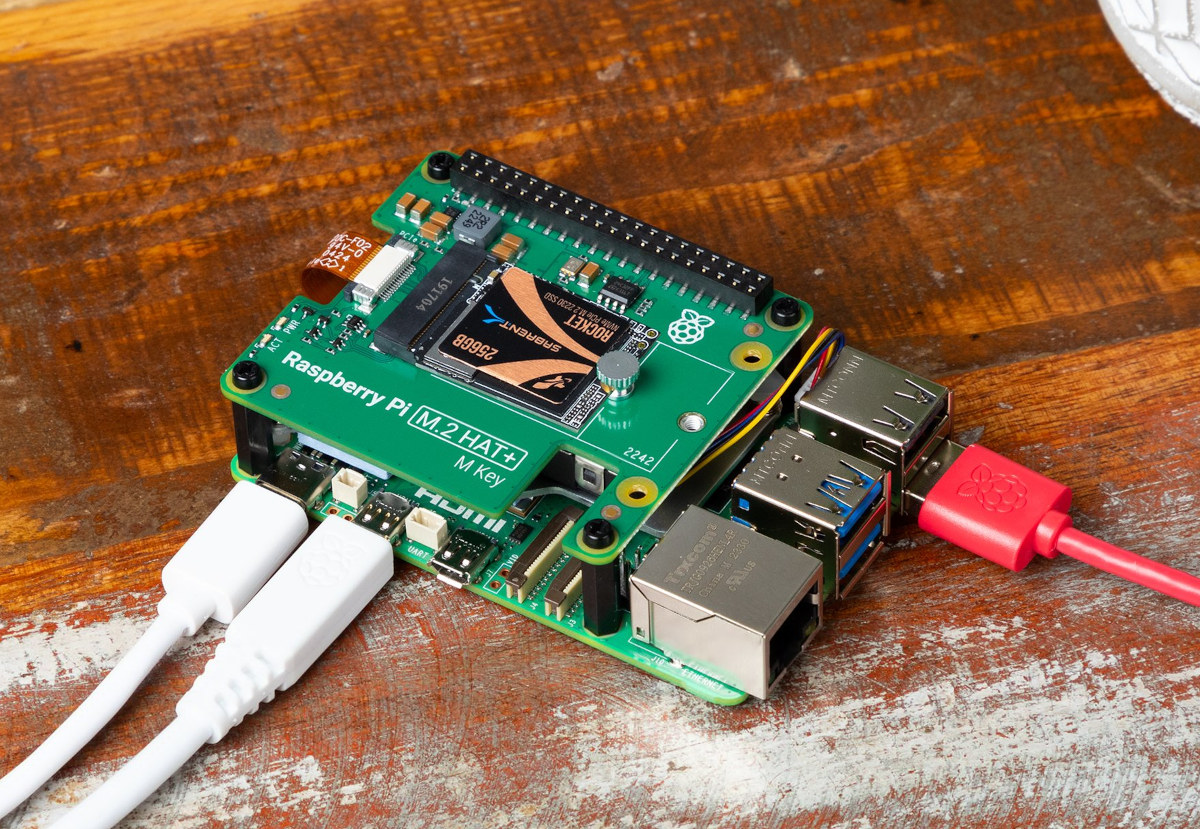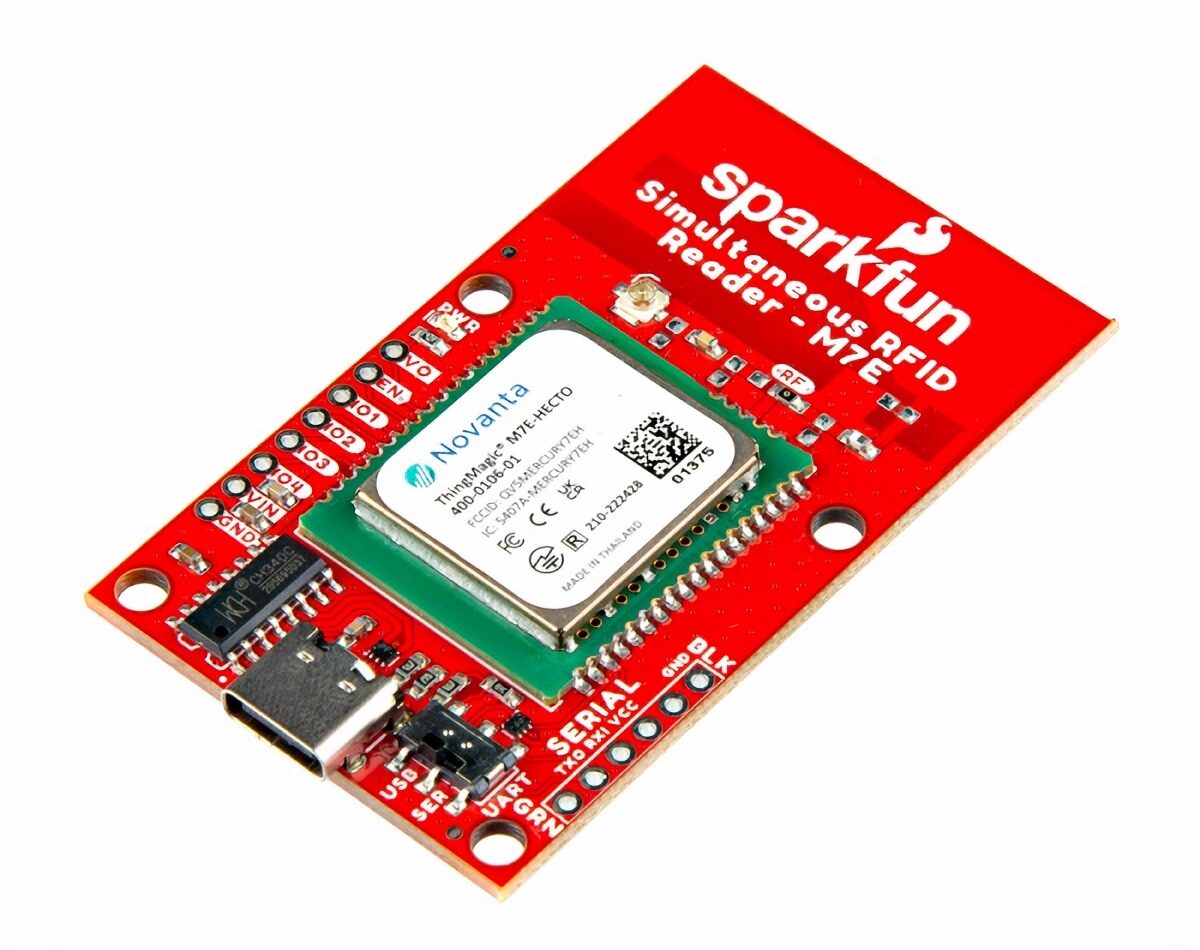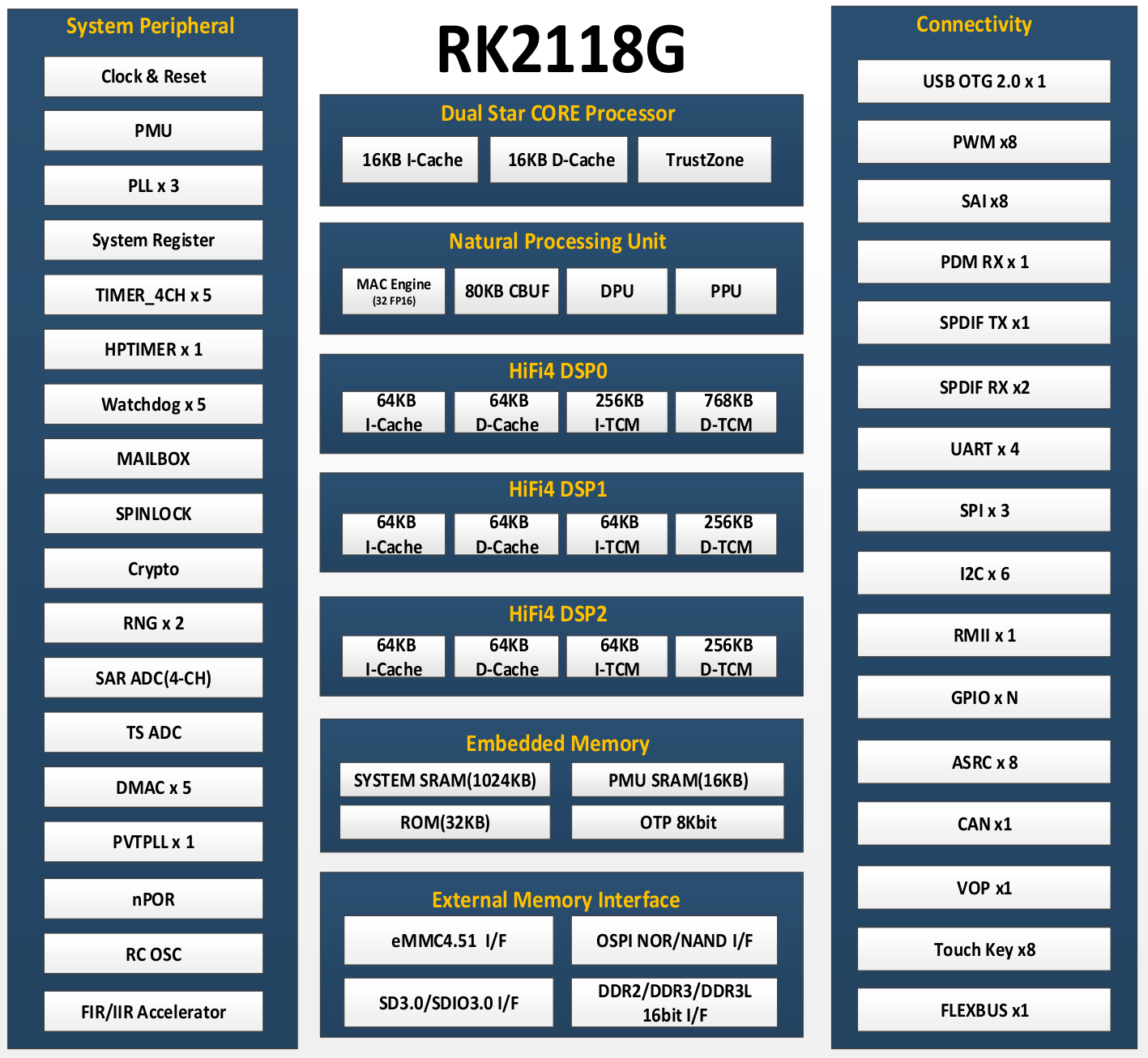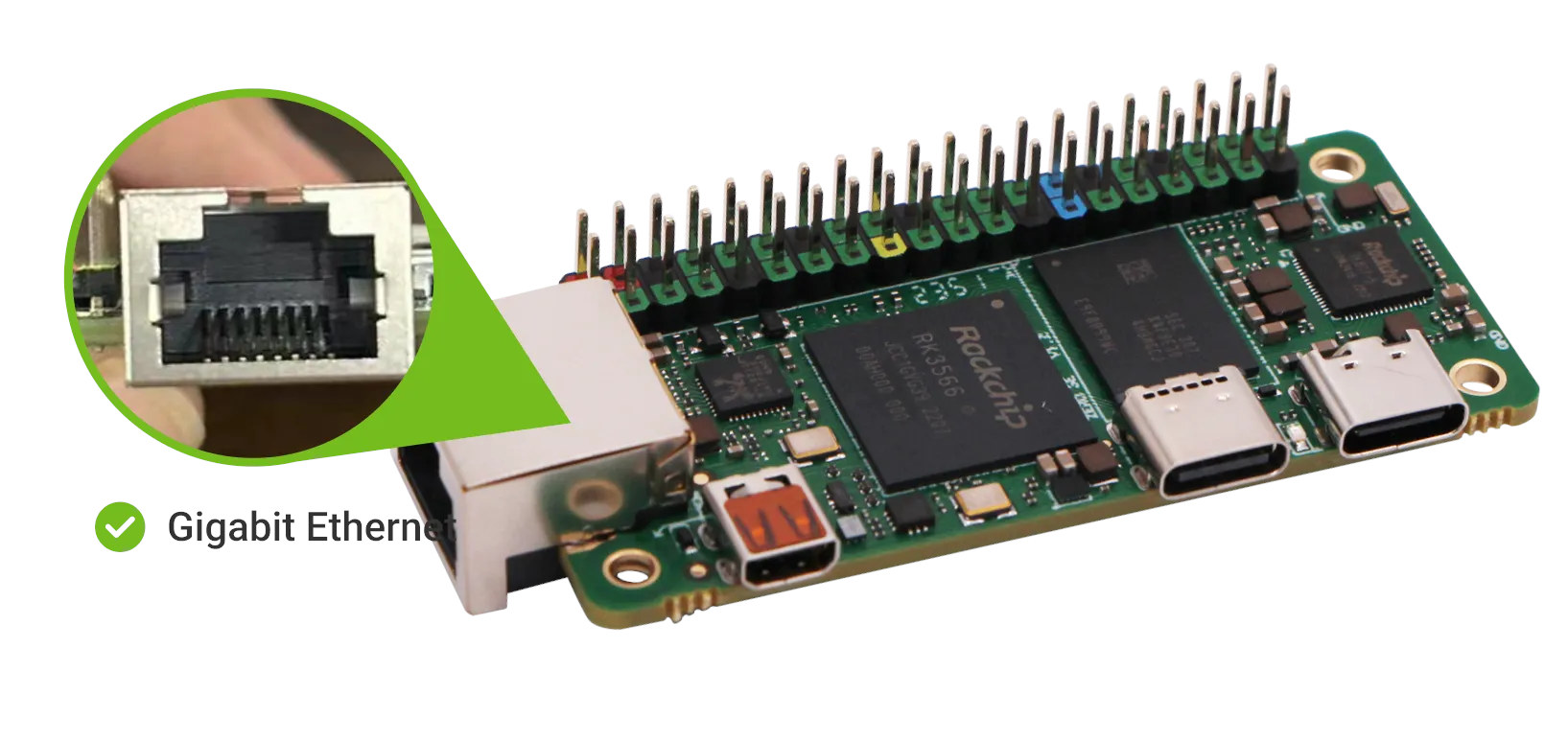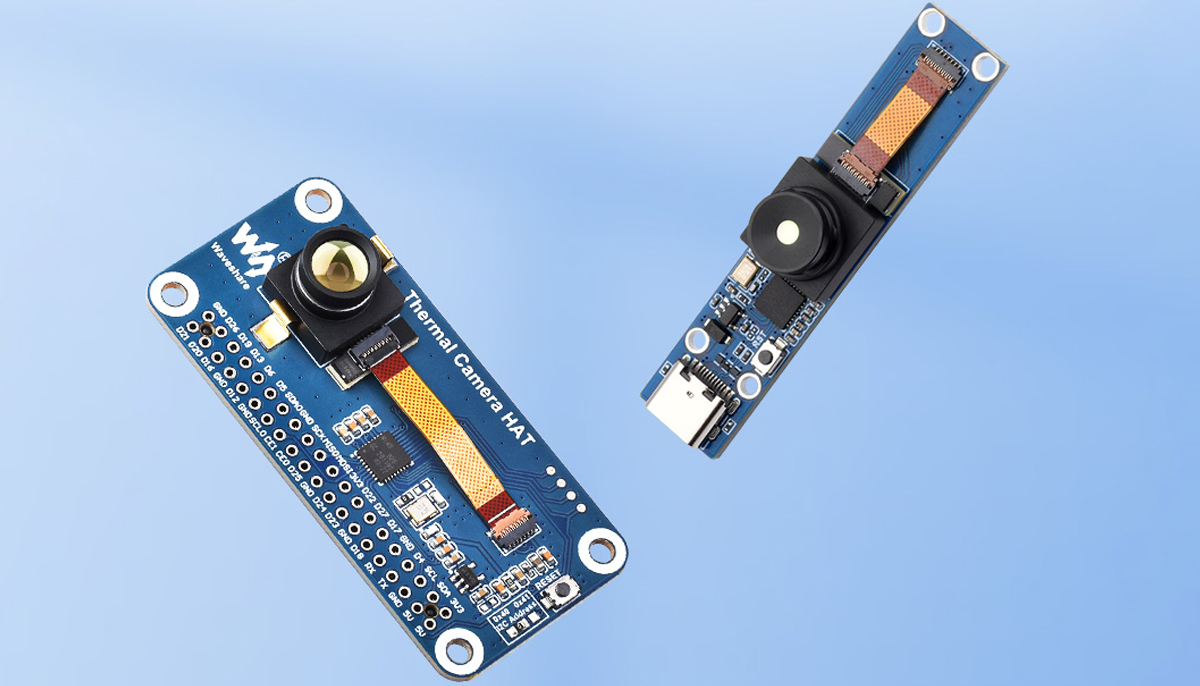GEEKOM A8 is an AI mini PC based on the powerful AMD Ryzen 9 8945HS (or Ryzen 7 8845HS) AI processor with AMD Radeon 780M Graphics, up to 64GB DDR5 memory, up to 2TB M.2 NVMe SSD support for up to four display up to 8K resolution, and comes preloaded with Windows 11 Pro operating system. The mini PC is equipped with two HDMI 2.1 ports, two USB-C ports with DisplayPort Alt mode, 4x USB 3.2 Type-A ports, 2.5GbE, a WiFi 6E and Bluetooth 5.3 module, and a stereo headset jack. GEEKOM sent us a sample of the A8 Mini PC with an AMD Ryzen 9 8945HS 8-core/16-thread processor, 32GB DDR5, and a 2TB M.2 NVMe SSD with Windows 11 Pro for review this time. We’ll start by listing some specifications, doing an unboxing, going through a teardown, and booting Windows 11. In the second and third parts of the […]
ardEEG shield works with Arduino UNO R4 WiFi for biosignals measurement
PiEEG has launched the ardEEG shield specially designed for the Arduino UNO R4 WiFi and capable of measuring biosignals such as those used in electroencephalography (EEG), electromyography (EMG), and electrocardiography (ECG). PiEEG, led by Ildar Rakhmatulin, Research Associate at Heriot-Watt University in Edinburgh, launched the PiEEG shield for Raspberry Pi to enable brain-computer interfaces last year, and now the company has been working on the equivalent design for Arduino with the ardEEG shield equipped with eight channel taking input from wet or dry electrodes. ardEEG shield key features and specifications ADC – Texas Instruments ADS1299 Analog-to-Digital Converter for biopotential measurements Supported board – Arduino UNO R4 WiFi 8 channels for connecting wet or dry electrodes (Electrodes are positioned according to the International 10-20 system) Host interface – Arduino headers with SPI used for data transfer with a frequency from 250 SPS to 16 kSPS and a resolution of 24 bits […]
Arduino Alvik is a 3-wheel robot designed for STEAM education
Arduino Education’s Arduino Alvik is a 3-wheel educational robot that was initially unveiled at the Bett 2024 show in London and designed to teach robotics, programming, and other STEAM subjects. The robot is based on an Arduino Nano ESP32 board and comes with a set of nineteen lessons designed by Arduino Education’s team in collaboration with teachers so that students can learn the basics of IoT, get started with MicroPython, and get themselves familiar with various physics and engineering concepts. The company has yet to provide the full specifications for the Alvik robot, but here’s what we know at this stage: Mainboard – Arduino Nano ESP32 2x wheels plus 1x ball wheel Sensors – “High-quality sensors” that include a ToF ranging sensor, line-following sensors, a 6-axis accelerometer & gyroscope, a proximity sensor, and color sensors. Expansion 2x Grove I2C connectors 2x Qwiic connectors 6-pin servo motor header for up to […]
Official Raspberry Pi M.2 HAT+ launched for $12
The official Raspberry Pi M.2 HAT+ is finally out for $12. The add-on board allows users to connect M.2 M-key peripherals, mainly NVMe SSDs, but also AI accelerators, to their Raspberry Pi 5 leveraging the PCIe connector on the(relatively) new SBC. We have to stress “official” because it’s been possible to do the exact same thing with third-party boards from PineBerry (now PineBoards), Waveshare, Pimoroni, and Geekworm for about half a year. I also had the opportunity to review the GEEKWORM X1001 and Waveshare M.2 PCIe HAT+ with Cytron MAKERDISK SSDs last month. But let’s have a look at what the official Raspberry Pi M.2 HAT+ has to offer. Raspberry Pi M.2 HAT+ M Key specifications: M.2 M-key socket for 2230 or 2242 modules Single-lane PCIe 2.0 interface (500 MB/s peak transfer rate) routed via Raspberry Pi PCIe FFC connector. (Note: PCIe 3.0 should also work fine on most Raspberry […]
SparkFun M7E Hecto is a simultaneous RFID Reader with USB-C connectivity and a range of up to 5m
SparkFun has announced the M7E Hecto, a ‘simultaneous’ RFID reader in a compact form factor and high-performance capabilities. The RFID reader is powered by Jadak’s Hecto module (M7E-HECTO) from the ThingMagic series which offers a wide RF output range from 0 dBm to +27 dBm and reads up to 300 tags/second. SparkFun M7E Hecto builds on the much older M6E Nano RFID reader, adding a USB-C port, increasing the read rate from 150 tags/second, and reducing power consumption. It supports an external antenna (sold separately) which extends the scanning distance up to 16 ft (4.8m) from the 1 to 2 ft (0.3m – 0.6m) range supported by the onboard antenna. It does come with a warning to ensure that personnel are not directly in the radiation beam of the antenna while they are within 21cm of the antenna (to adhere to FCC limits for long-term exposure to RF emissions). The […]
Rockchip RK2118G/RK2118M dual-core Star-SE Armv8-M microcontrollers target smart audio applications
Rockchip RK2118G and RK2118M smart audio microcontrollers based on a dual-core Star-SE Armv8-M processor, an NPU for smart AI audio processor, three DSPs, 1024KB SRAM, optional DDR memory in package, and a range of peripherals. I first noticed the RK2118M in slides from the Rockchip Developer Conference 2024 last March, but I did not have enough information for an article at the time. Things have now changed since I’ve just received a bunch of datasheets including the one for the RK2118G and RK2118G microcontrollers, which look identical except for the DDR interface and optional built-in 64MB RAM for the RK2118G. The datasheets have only one reference to Arm with the string “Arm-V8M” and nothing else, and Cortex is not mentioned at all. But the slide above reveals the STAR-SE core looks to be an Arm Cortex-M33 core. We also learn the top frequencies for the “STAR-M33″/”STAR-SE” core (300MHz) and the […]
Radxa Zero 3E SBC offers gigabit Ethernet and PoE in Raspberry Pi Zero 2 W form factor
Last December, we wrote about the Rockchip RK3566-powered Radxa Zero 3W WiFi 6 SBC and noted that the Radxa Zero 3E with gigabit Ethernet and optional PoE supports would be coming soon with about the same dimensions as the Raspberry Pi Zero 2 W. “Soon” is now as the Radxa Zero 3E is now available on Aliexpress or Amazon with RAM capacities from 1GB to 8GB LPDDR4. The small SBC also comes with optional eMMC flash up to 64GB, a microSD card slot for storage, a micro HDMI video output port, a MIPI CSI connector compatible with Raspberry Pi Camera V1 and V2, two USB-C ports, and a 40-pin GPIO header for expansion. Radxa Zero 3E specifications: SoC – Rockchip RK3566 CPU – Quad-core Arm Cortex-A55 processor @ 1.6 GHz GPU – Arm Mali G52-2EE GPU with support for OpenGL ES 1.1/2.0/3.2, Vulkan 1.1, OpenCL 2.0 NPU – 0.8 TOPS […]
Waveshare Thermal Imaging Camera Module – Raspberry Pi HAT or USB-C model, 80×62 resolution, dual FOV options (45°/90°)
The Waveshare Thermal Imaging Camera module comes in two variants, namely the Thermal-45/90 Camera Raspberry Pi HAT and Thermal-45/90 USB Camera. The main difference between the two is that the HAT is designed to be attached to a Raspberry Pi, Pi Zero, or any other SBC that features a Pi-compatible pin layout like the Sipeed Longan Pi3H, Banana Pi BPI-M4, Radxa Zero 3W SBC, and others. On the other hand, the USB module can be connected to any PC, Android, or other device with a USB connection. The camera features a shutterless design, which is why it can produce a thermal imaging video stream output of up to 25 frames per second (FPS). Additionally, Waveshare offers options for different fields of view (FOV) – a basic version with a 45° FOV and a wide-angle version with a 90° FOV, making it suitable for applications like IR thermometers, industrial temperature control, […]


